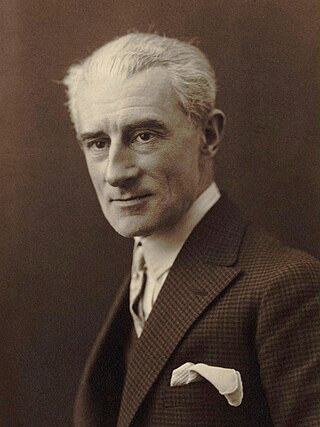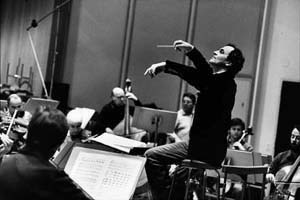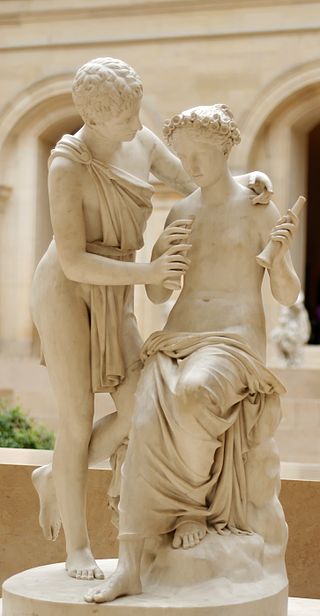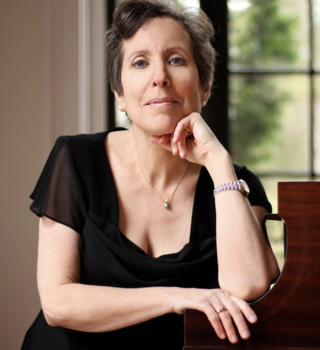Daphnis and Chloe is a work from the 2nd century AD by the Greek author Longus. This story is the basis of several works of art:

Joseph Maurice Ravel was a French composer, pianist and conductor. He is often associated with Impressionism along with his elder contemporary Claude Debussy, although both composers rejected the term. In the 1920s and 1930s Ravel was internationally regarded as France's greatest living composer.
The 18th Annual Grammy Awards were held February 28, 1976, and were broadcast live on American television. They recognized accomplishments by musicians from the year 1975.

Charles Édouard Dutoit is a Swiss conductor. He is currently the principal guest conductor for the Saint Petersburg Philharmonia and co-director of the MISA Festival in Shanghai.

Daphnis et Chloé is a 1912 symphonie chorégraphique, or choreographic symphony, for orchestra and wordless chorus by Maurice Ravel. It is in three main sections, or parties, and a dozen scenes, most of them dances, and lasts just under an hour, making it the composer's longest work. In effect it is a ballet, and it was first presented as such. But it is more frequently given as a concert work, either complete or excerpted, vindicating Ravel's own description above.

Daphnis and Chloe is an ancient Greek novel written in the Roman Empire, the only known work of the second-century AD Greek novelist and romance writer Longus.

Ma mère l'Oye is a suite by French composer Maurice Ravel. The piece was originally written as a five-movement piano duet in 1910. In 1911, Ravel orchestrated the work.
This Suite for violoncello, like the Cello Concerto and the Piano Trio, came from one of Gaspar Cassadó's most prolific periods, in the mid-1920s. It was dedicated to Francesco von Mendelssohn.

Sinfonia of London is a symphony orchestra based in London, England, conducted by John Wilson.
Daphnis et Chloé is the name of two classical compositions based on the story of Daphnis and Chloe:

Daphnis et Chloé is a one-act opérette by Jacques Offenbach. The libretto was by Clairville and Jules Cordier, based on the story of Daphnis and Chloe. The origin is the novel by Longus adapted as a play at the Théâtre du Vaudeville in 1849.
Emmanuel Villaume is a French orchestra conductor. He is currently music director of the Dallas Opera and chief conductor of the Prague Philharmonia.
Alsatian conductor Charles Munch was one of the most widely recorded symphonic conductors of the twentieth century. Here is a partial list of his recordings.
The keyboard glockenspiel (French: jeu de timbre) or organ glockenspiel is an instrument consisting of a glockenspiel operated by a piano keyboard. It was first used by George Frideric Handel in the oratorio Saul (1739). It was also used in the 1739 revivals of his Il Trionfo del Tempo and Acis and Galatea, and the next year in L'Allegro, il Penseroso ed il Moderato. Half a century later, Wolfgang Amadeus Mozart employed a strumento d’acciaio in The Magic Flute (1791) to represent Papageno's magic bells, and this instrument is believed to have been a keyboard glockenspiel. This part is nowadays sometimes taken by a celesta. Maurice Ravel preferred the keyboard version of the instrument because it can play a true ff dynamic for brilliance and iridescence in orchestral climaxes. In the late 20th century, the firm of Bergerault began manufacturing a three-octave (F2–E4) mallet instrument with a damping mechanism operated by a foot pedal, which is capable of dealing with the wide range called for in contemporary scores.

Daphnis and Chloe, is a 1931 Greek romance film written and directed by Orestis Laskos, based on the namesake novel of the 2nd-century writer Longus. It is sometimes said to be the first European film containing nude scenes. The 1897 film by George Méliès After The Ball was much earlier, but uses simulated nudity via use of body stockings.

Allison Brewster Franzetti is an American pianist and music educator, originally from New York City.
Lucien Garban (1877–1959) was a French composer, music arranger and editor who wrote transcriptions still performed in the modern repertoire. The Bibliothèque nationale de France lists about twenty original works by Garban and a large number of transcriptions by other composers. Many of his works were published under the pen name Roger Branga. He was a member of Société des Apaches.

Marc Soustrot is a French classical conductor. He was the music director of the Orchestre national des Pays de la Loire from 1976 to 1994, and from 1995 to 2003 GMD of the Beethoven Orchester Bonn which plays in both opera and concert. He has worked at major opera houses in Europe and made several recordings, such as Leonore, Beethoven's first version of Fidelio, the piano concertos and symphonies by Camille Saint-Saëns, Honegger's Jeanne d'Arc au bûcher, and Penderecki's St Luke Passion.
Pedro de Freitas Branco (1896–1963) was a Portuguese conductor and composer.
The conductor Bernard Haitink recorded works, especially symphonies and other orchestral works, with different orchestras. He made recordings for several labels, including Philips Records, EMI Classics, Columbia Records, LSO Live, RCO Live, and CSO Resound.